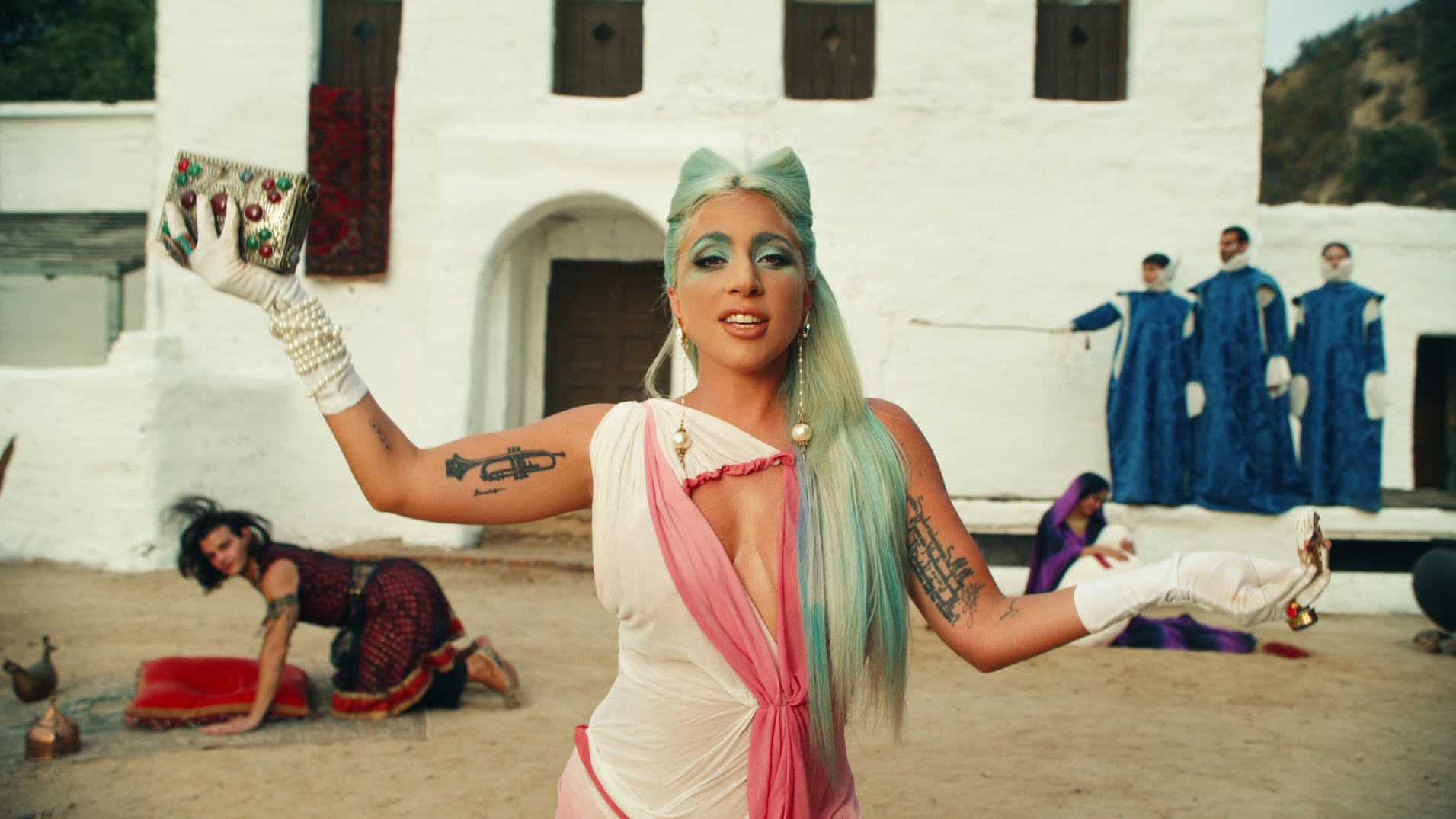Amidst the whirlwind of fame and controversy, Lady Gaga has been a central figure in pop culture for over a decade. Known for her avant-garde style, powerful music, and outspoken advocacy, she has often been the subject of various rumors and conspiracy theories. One of the most persistent allegations involves claims that she is associated with satanism. This article aims to provide a comprehensive overview of the topic, examining the origins of these claims, their validity, and the broader implications for Lady Gaga's career and public perception.
As one of the most iconic artists of our time, Lady Gaga’s influence extends far beyond the music industry. Her work has sparked discussions about gender, sexuality, religion, and freedom of expression. However, these discussions have sometimes led to misunderstandings and misinformation, particularly when it comes to her alleged ties to satanism. In this article, we will delve into the origins of these rumors, explore the evidence (or lack thereof), and analyze their impact on both Lady Gaga and her fans.
Through careful research and analysis, we aim to separate fact from fiction while providing valuable insights into the complexities of celebrity culture and the dangers of spreading unverified information. Whether you're a long-time fan or simply curious about the topic, this article offers a balanced perspective on the controversial subject of "Lady Gaga and satanist" claims.
Read also:What Is Paige From Young Sheldons Real Name Discover The Actress Behind The Character
Who Is Lady Gaga? A Brief Biography
Lady Gaga, born Stefani Joanne Angelina Germanotta on March 28, 1986, in New York City, is one of the most celebrated musicians of the modern era. Her journey from a young piano prodigy to a global superstar is nothing short of inspiring. Below is a brief overview of her personal and professional life:
| Full Name | Stefani Joanne Angelina Germanotta |
|---|---|
| Birthdate | March 28, 1986 |
| Place of Birth | New York City, USA |
| Occupation | Singer, Songwriter, Actress, Activist |
| Debut Album | "The Fame" (2008) |
| Major Awards | Multiple Grammy Awards, Academy Award, Golden Globe Awards |
| Philanthropy | Founder of the Born This Way Foundation |
Why Do People Believe Lady Gaga Is Linked to Satanism?
Conspiracy theories surrounding Lady Gaga and satanism have persisted for years, fueled by her provocative performances, symbolic imagery, and public statements. Some critics point to her use of occult symbols in music videos, such as the inverted pentagram in "Alejandro," or her collaboration with artists rumored to have ties to the occult. Others cite her involvement in controversial projects like "Machete" or her performance at the Super Bowl halftime show as evidence of her supposed allegiance to satanic beliefs.
However, it's essential to consider the context in which these accusations arise. In pop culture, artistic expression often involves pushing boundaries and challenging societal norms. Lady Gaga's work frequently incorporates elements of performance art, which can be misinterpreted by those unfamiliar with her creative vision. By examining her intentions and the historical precedents of similar artistic movements, we can better understand why such claims gain traction.
What Evidence Exists to Support These Claims?
Despite the prevalence of rumors, there is little credible evidence linking Lady Gaga to satanism. Most accusations stem from misinterpretations of her work or deliberate attempts to discredit her. For instance, critics often cite her use of religious symbolism in music videos as proof of her alleged beliefs. Yet, Lady Gaga has repeatedly emphasized her Catholic upbringing and her commitment to using her platform for positive change.
In interviews, she has addressed these allegations directly, dismissing them as baseless and harmful. Her dedication to philanthropy through the Born This Way Foundation further underscores her values and intentions. By focusing on mental health awareness, LGBTQ+ rights, and education, Lady Gaga demonstrates a clear commitment to improving the world around her rather than engaging in destructive practices.
How Has Lady Gaga Responded to These Accusations?
Lady Gaga has consistently addressed accusations of satanism with grace and transparency. In interviews and public appearances, she has clarified her artistic choices and explained their deeper meanings. For example, her use of religious symbols in performances is often intended to spark dialogue about faith, identity, and social justice.
Read also:Hdhub4u Y Movie Your Ultimate Guide To Streaming Movies
Moreover, her personal beliefs and values are well-documented. As someone who grew up in a Catholic household, Lady Gaga has spoken openly about her spiritual journey and her belief in the power of love and compassion. By sharing her experiences and motivations, she helps dispel misconceptions and fosters understanding among her audience.
Is There Any Truth Behind "Lady Gaga and Satanist" Claims?
While rumors about Lady Gaga's alleged ties to satanism may persist, they lack substantial evidence. Most claims are based on superficial interpretations of her art or deliberate attempts to sensationalize her work. It's crucial to approach such allegations critically, considering the broader cultural and historical context in which they arise.
Pop culture has a long history of vilifying artists who challenge conventional norms. From Elvis Presley to Marilyn Manson, numerous figures have faced accusations of immorality or devil worship due to their innovative approaches to music and performance. Lady Gaga is merely the latest in a long line of artists to experience this phenomenon.
What Role Does Religion Play in Lady Gaga's Art?
Religious themes frequently appear in Lady Gaga's music and performances, serving as a vehicle for exploring complex issues like faith, morality, and identity. Her use of Catholic imagery, for instance, reflects her upbringing and her ongoing exploration of spirituality. Rather than promoting satanism, her work often critiques societal norms and encourages audiences to think critically about their beliefs.
In songs like "Judas," Lady Gaga reimagines biblical narratives to challenge traditional interpretations and inspire new perspectives. By doing so, she invites listeners to engage with her art on a deeper level, fostering dialogue and reflection. This approach aligns with her broader mission to promote empathy, acceptance, and understanding.
Can Art Be Misunderstood as Promoting Harmful Ideologies?
Artistic expression often walks a fine line between provocation and offense, making it susceptible to misinterpretation. Lady Gaga's work, with its bold visuals and thought-provoking themes, is no exception. Critics who view her art through a narrow lens may mistake its intent, leading to accusations of promoting harmful ideologies like satanism.
However, it's important to recognize the difference between artistic exploration and genuine endorsement. Lady Gaga's use of religious symbols, for instance, is not an attempt to convert or indoctrinate but rather a means of sparking conversation and encouraging self-reflection. By engaging with her work critically, audiences can appreciate its depth and complexity without succumbing to unfounded fears.
How Can Fans Differentiate Between Fact and Fiction?
For fans and casual observers alike, distinguishing fact from fiction in the realm of celebrity culture can be challenging. With so much misinformation circulating online, it's vital to rely on credible sources and approach claims with skepticism. When evaluating allegations like "Lady Gaga and satanist," consider the following:
- Examine the source of the information: Is it reputable and trustworthy?
- Look for corroborating evidence: Are there multiple credible sources supporting the claim?
- Consider the context: Does the accusation align with the artist's known values and intentions?
- Engage in critical thinking: Does the claim make logical sense based on available evidence?
What Impact Do These Allegations Have on Lady Gaga's Career?
While accusations of satanism have not significantly harmed Lady Gaga's career, they have contributed to a polarized fanbase and ongoing debates about her work. For some, these claims reinforce negative stereotypes about her and her art. For others, they highlight the importance of critical thinking and media literacy in today's information age.
Ultimately, Lady Gaga's success speaks for itself. With millions of devoted fans worldwide and numerous accolades to her name, she continues to inspire and influence countless individuals. By focusing on her positive contributions to society, we can celebrate her achievements while dismissing unfounded rumors.
Conclusion: Separating Fact from Fiction
In conclusion, the allegations surrounding Lady Gaga and satanism are largely baseless, rooted in misunderstandings and deliberate attempts to discredit her. By examining the evidence critically and considering the broader context of her work, we can appreciate her art for what it truly is: a powerful expression of creativity and social consciousness. As we continue to engage with pop culture, let us strive to promote understanding, empathy, and critical thinking in all our interactions.
Table of Contents
- Who Is Lady Gaga? A Brief Biography
- Why Do People Believe Lady Gaga Is Linked to Satanism?
- What Evidence Exists to Support These Claims?
- How Has Lady Gaga Responded to These Accusations?
- Is There Any Truth Behind "Lady Gaga and Satanist" Claims?
- What Role Does Religion Play in Lady Gaga's Art?
- Can Art Be Misunderstood as Promoting Harmful Ideologies?
- How Can Fans Differentiate Between Fact and Fiction?
- What Impact Do These Allegations Have on Lady Gaga's Career?
- Conclusion: Separating Fact from Fiction

